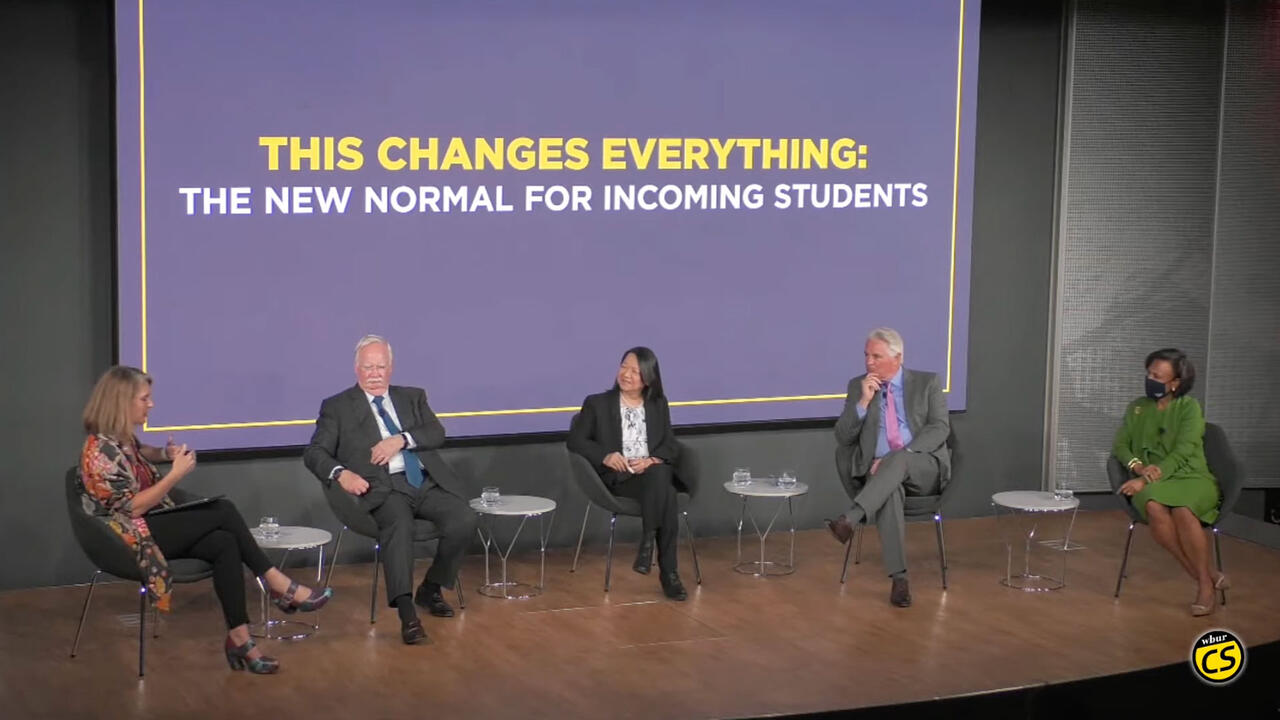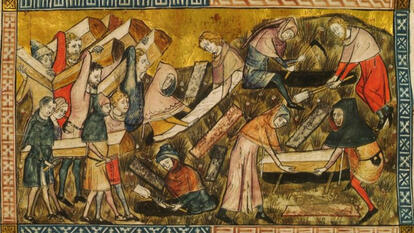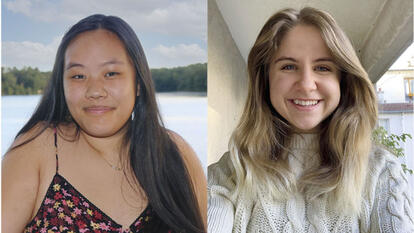
“We’re Not Islands”: The New Normal in Higher Education
On September 14, Wellesley’s President Paula Johnson gathered with three fellow college presidents to discuss the “new normal” in higher education as part of This Changes Everything, a new WBUR series at CitySpace that examines “how our norms, our institutions and our culture have had to adjust to a new reality and what that reality will look like.” Johnson and Robert Brown of Boston University, David Greene of Colby College, and Pam Eddinger of Bunker Hill Community College spoke alongside the moderator, Radio Boston host Tiziana Dearing, in front of a limited, socially distanced, live audience at CitySpace. The event was also streamed virtually.
Dearing began by asking each president about “the invisible disruption” that COVID-19 posed for their institutions—“one that maybe others didn’t see or that you didn't expect, big or small.” Johnson said that being together on a campus is “an equalizer of sorts” for students, but with students participating in classes virtually, Wellesley faculty and staff had the chance to see into students’ homes—quite literally—and to understand better where each of them is coming from. She spoke of Wellesley’s commitment to inclusive excellence and how COVID-19 really shed light on ways the institution could work a lot harder to be truly inclusive. “We have an increasingly and phenomenally diverse campus,” she said, “but we really need to make sure that we are embracing that diversity and focusing on equity.” Student by student, Johnson said, Wellesley evaluated what each individual needed. For some, it was laptops and wireless hotspots; others needed a safe place to stay during lockdown, and Wellesley allowed them to remain on campus throughout the pandemic.
“This experience has made it very clear that we’re not islands. It’s not just about keeping our campus safe. It’s about how we can improve the health of our entire community.”
President Paula A. Johnson
The presidents enthusiastically supported each other’s points, reflecting the way the “higher education industry”—as Johnson called it—has come together in the past 18 months. Eddinger said the institutions in Massachusetts provided each other with advice and guidance and shared testing strategies and COVID-19 policies, which was especially helpful due to the lack of support from the federal government.
Colleges and universities became more involved in their communities as well during the pandemic. Greene said Colby paid its dining hall staff to make meals for food insecure residents in Waterville, Maine, where the college is located. Eddinger described how Bunker Hill turned its unused gym into a women’s shelter, and Johnson said Wellesley offered dorm space on campus to first responders who needed to isolate and couldn’t go home.
“This experience has made it very clear that we’re not islands,” said Johnson. “It’s not just about keeping our campus safe. It’s about how we can improve the health of our entire community. And we’re not going to get beyond this pandemic until that is the feeling that we have across the country, and quite frankly across the world.”
Throughout the conversation, the four presidents emphasized that many of the changes instituted during COVID-19 are here to say. “I have a feeling we’re not going to turn back,” said Johnson. She spoke of a “transformation” happening in higher education, citing Wellesley’s newly adopted flexible work policies that, a year and a half ago, would have been unthinkable to many colleges and universities, or how Wellesley has once again opted to make submitting standardized test scores optional for fall 2021 applicants, which allows for a greater diversity of candidates. “We’ve learned a tremendous amount,” she said. “And I think that people in our communities are no longer going to tolerate certain things that were done in old ways.” The three other presidents nodded in agreement.
As the event drew to a close, Johnson said, “At some point, this will pass. But this work can’t stop. We’re not going to fix things overnight. It’s going to take the ongoing commitment of all of us, and our successors, in order to make things different, and I think that’s the hard part: keeping our eyes laser-beam focused on this work.”



